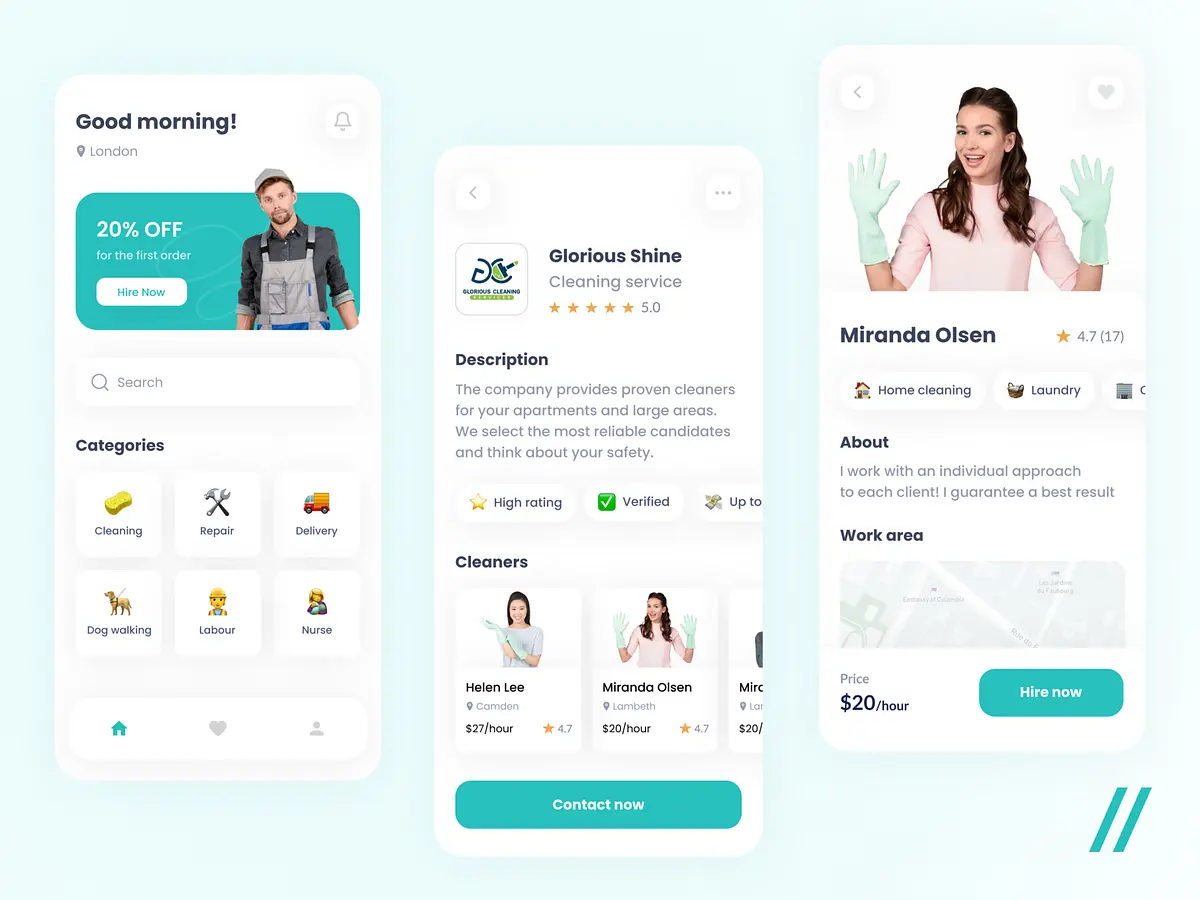Benefits of AI in Healthcare you should know


Thanks to artificial intelligence (AI), Healthcare is transforming rapidly, promising the whole industry many benefits. This article will reveal the benefits of AI in Healthcare and how it is changing the industry.
Artificial Intelligence, or AI, is the computer systems simulation of human intelligence processes. It involves the development of algorithms and computer programs that can perform tasks that would typically require human intelligence, such as visual perception, speech recognition, decision-making, and language translation. AI aims to create machines that can think, learn, and adapt like humans and ultimately improve our lives by automating mundane tasks, enhancing medical diagnosis, and even driving cars.

What is AI in Healthcare?
Artificial Intelligence (AI) is rapidly transforming the healthcare industry. It involves using machine learning algorithms and other technologies to analyze large amounts of healthcare data and make predictions and recommendations based on that data.
See details of TECHVIFY service: AI Development Services
Artificial Intelligence (AI) has entered many industries, and Healthcare is no exception.
AI can help healthcare professionals to identify potential health problems earlier, develop personalized treatment plans, and improve overall patient outcomes.

Benefits of AI in healthcare
Some of the most promising applications of AI in Healthcare include disease diagnosis, drug discovery, and patient monitoring. With AI’s ability to analyze vast amounts of data quickly and accurately, it has the potential to revolutionize how Healthcare is delivered and improve the quality of care for patients.
From diagnosis to treatment, AI is making various impacts. We just named some of them:
One of the benefits of AI in Healthcare is that it can predict disease outbreaks, patient deterioration, and potential diseases. By recognizing patterns and trends, healthcare providers can take proactive measures to oversee patient well-being and distribute resources effectively, preventing diseases and outbreaks in public health.
AI can also help with diagnosis. Sometimes, AI algorithms can diagnose certain conditions more accurately than human doctors. For example, a study published in Nature Medicine found that an AI algorithm could diagnose skin cancer more accurately than a group of human dermatologists.
But AI isn’t just about diagnosis and treatment. It can also be used to improve patient care. For example, AI chatbots can provide patients with personalized advice and support, reducing the need for in-person visits. This transformation can benefit patients who live in remote areas or have mobility issues.
The traditional drug discovery process can take years, a difficult challenge for AI in Healthcare. However, AI-powered simulations accelerate this process by predicting how different compounds interact with the human body. This acceleration opens the door to faster identification of potential drug candidates and faster development timelines.
The combination of AI and robotics results in unparalleled surgical precision. AI-guided robotic systems assist surgeons in complex procedures, improving surgical outcomes and faster recovery times – proving that AI’s future in healthcare is exceptionally bright.
AI systems can spot subtle changes in medical data that indicate a disease is just getting started. AI helps patients improve prognoses and lowers healthcare expenditures by enabling prompt interventions.
AI has been and is seen as the future of ai in healthcare by many industries that can benefit from AI. The pharmaceutical industry is one of these industries. Thanks to automated algorithms, professionals can now complete tasks in a way previously only possible for humans. Many benefits of AI in Healthcare have been created because of the tremendous changes in the pharmaceutical business over the past five years in how scientists operate, produce pharmaceuticals, and assist illness treatment.
AI’s capacity to evaluate complicated medical images, such as X-rays and MRIs, is a game-changer for diagnostics and medical imaging. It enables early and precise diagnosis by spotting minor irregularities that could be invisible to the human eye. This early intervention results in better patient outcomes and a higher chance of successful therapy.
AI holds unquestionable promise for the future of healthcare, rapidly moving from science fiction to reality. Continuous research reduces implementation costs, making AI a viable option.
The attraction of artificial intelligence in healthcare extends beyond democratizing worldwide access to medical services. Developed countries can overcome care gaps, while underdeveloped countries can improve access despite constraints.
The potential of AI rests in its ability to augment healthcare personnel as insightful assistants, process data faster than humans, and represent medical expertise. Combined with machine learning, AI provides top-tier doctors’ insights into many areas for quick and exact diagnosis, with continual advancements.
AI does not replace doctors but combines data and medical experience to provide accurate real-world interpretations. Using AI allows for the global application of top medical knowledge for a faster, more exact diagnosis.

Future and Challenges of AI in Healthcare
Of course, there are challenges to integrating AI into Healthcare.
Due to AI effectiveness primarily relying on data sources, data-related issues become the biggest challenges.
1. Data Privacy and Security
One of the biggest challenges is ensuring that patient data is kept private and secure. Protecting patient data is a significant hurdle due to stringent privacy regulations, with the need to safeguard sensitive healthcare information while employing AI for data analysis presenting a significant obstacle.
2. Algorithm
Another challenge is ensuring that AI algorithms are unbiased and don’t perpetuate existing inequalities.
Despite these challenges, the potential benefits of AI in Healthcare are enormous. By improving diagnosis, treatment, and patient care, AI has the potential to save lives and revolutionize medicine. The future of healthcare is here, and AI powers it.
3. Regulatory Barriers
AI-driven medical devices and algorithms must navigate intricate regulatory routes to attain approval and conformity, guaranteeing patient safety and operational effectiveness.
4. Transforming the Healthcare Workforce
The incorporation of AI could necessitate the reeducation of healthcare practitioners to collaborate effectively with AI systems, enhancing their functionalities and establishing patient confidence.
5. Patient Acceptance
Finally, how can we prove and establish patient trust in AI-powered healthcare interventions after overcoming the challenges above? This will necessitate skillful communication and thorough education regarding AI technology’s advantages and constraints.
Discover more about healthcare industry:
There is no denying that the benefits of ai in healthcare are a phenomenon. AI holds the future of the healthcare industry; all of these applications are now a reality, and the rate of progress is lowering the cost of expanding this technology, making it a more practical option. And where we are, TECHVIFY‘s game-changing technology has shown itself to be an ideal future of ai in healthcare.


Table of ContentsI. What is Artificial Intelligence in Healthcare?II. Benefits of AI in Healthcare1. Prediction2. Diagnosis3. Personalized care and more accessible healthcare services4. Accelerate Drug Discovery5. Precision Surgery with Robots6. Early Detection and Treatment7. Empowering Diagnostics and Medical ImagingIII. Future and Challenges of AI in HealthcareFuture of ai in healthcareChallenges of ai in healthcareConclusion Technological advancements are paving new paths for companies across different sectors, and the logistics industry is no exception. According to a survey by Gartner, 87% of supply chain professionals plan to invest in enhancing the resilience of their platforms. Logistics encompasses a broad and complex array…
26 July, 2024

Table of ContentsI. What is Artificial Intelligence in Healthcare?II. Benefits of AI in Healthcare1. Prediction2. Diagnosis3. Personalized care and more accessible healthcare services4. Accelerate Drug Discovery5. Precision Surgery with Robots6. Early Detection and Treatment7. Empowering Diagnostics and Medical ImagingIII. Future and Challenges of AI in HealthcareFuture of ai in healthcareChallenges of ai in healthcareConclusion The technology sector is advancing at an unprecedented pace, and the HR landscape is evolving right alongside it. To attract top talent, HR professionals and organizations need to stay ahead of emerging technology hiring trends. This year, we are witnessing significant shifts in hiring practices that…
25 July, 2024

Table of ContentsI. What is Artificial Intelligence in Healthcare?II. Benefits of AI in Healthcare1. Prediction2. Diagnosis3. Personalized care and more accessible healthcare services4. Accelerate Drug Discovery5. Precision Surgery with Robots6. Early Detection and Treatment7. Empowering Diagnostics and Medical ImagingIII. Future and Challenges of AI in HealthcareFuture of ai in healthcareChallenges of ai in healthcareConclusion Customized software plays a major role in managing various tasks within the telecom industry. It is essential for allocating numbers to subscribers and managing networks through optimized and AI-enabled routing protocols. Additionally, it aids in detecting fraud with intelligent telecom software development solutions and maintaining detailed…
24 July, 2024


Thank you for your interest in TECHVIFY Software.
Speed-up your projects with high skilled software engineers and developers.
By clicking the Submit button, I confirm that I have read and agree to our Privacy Policy